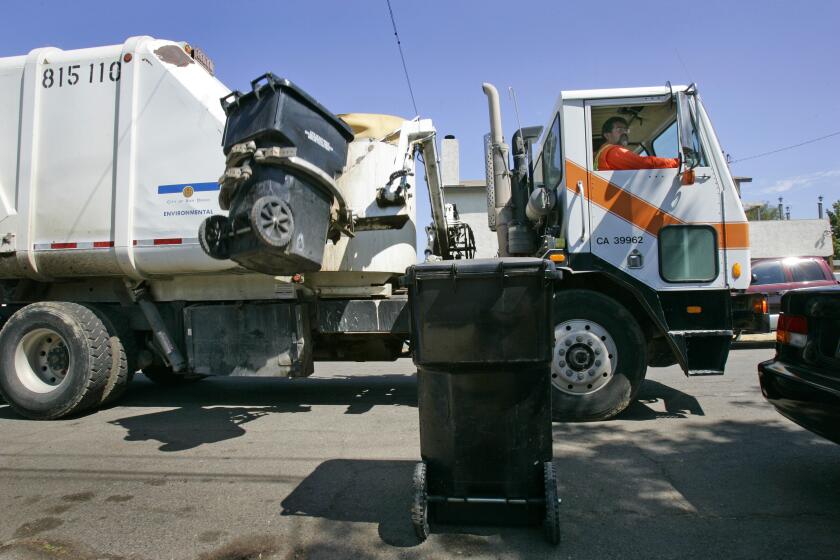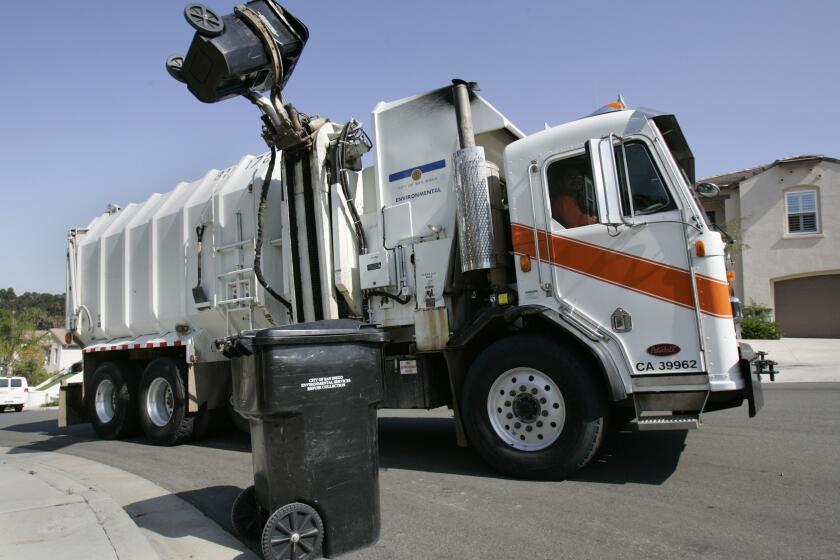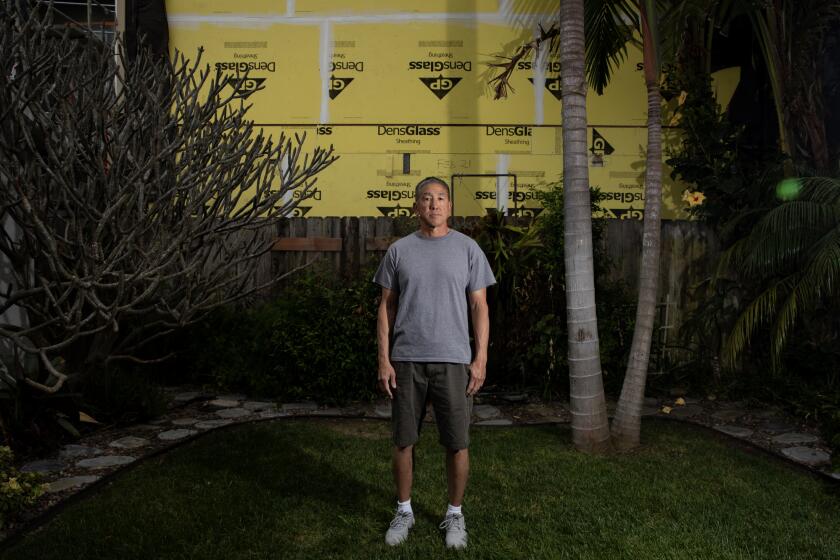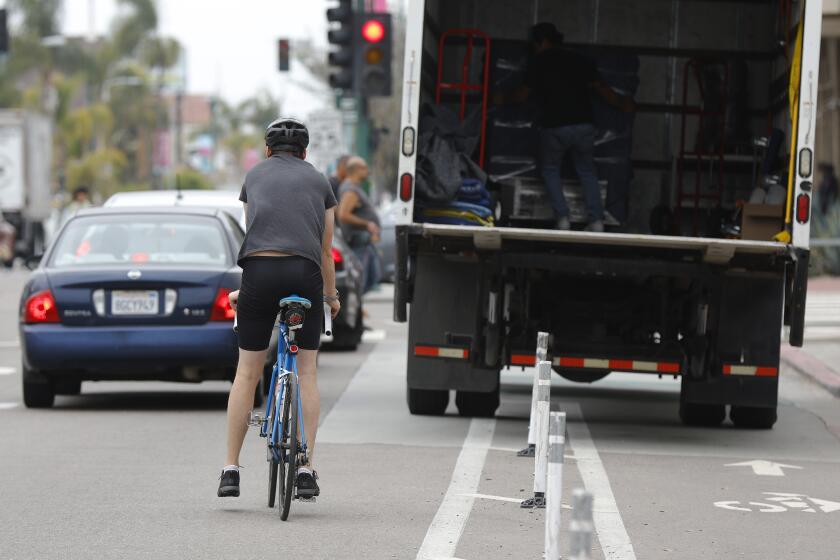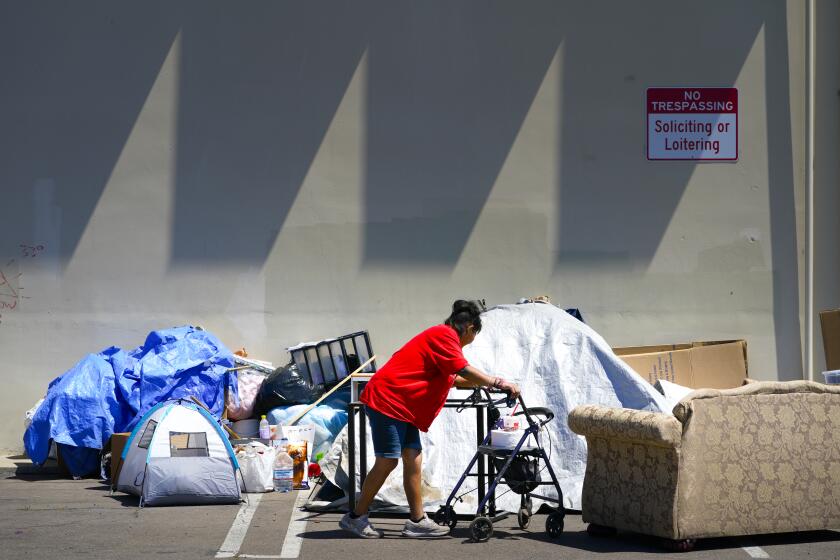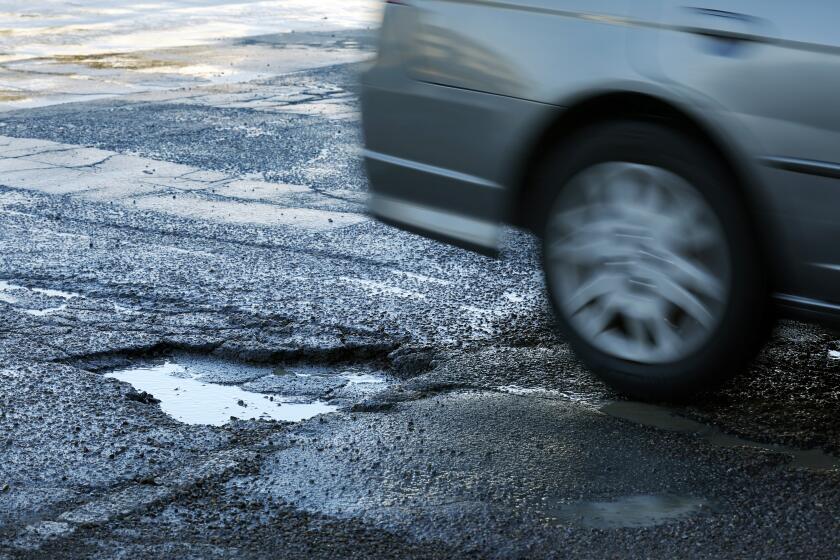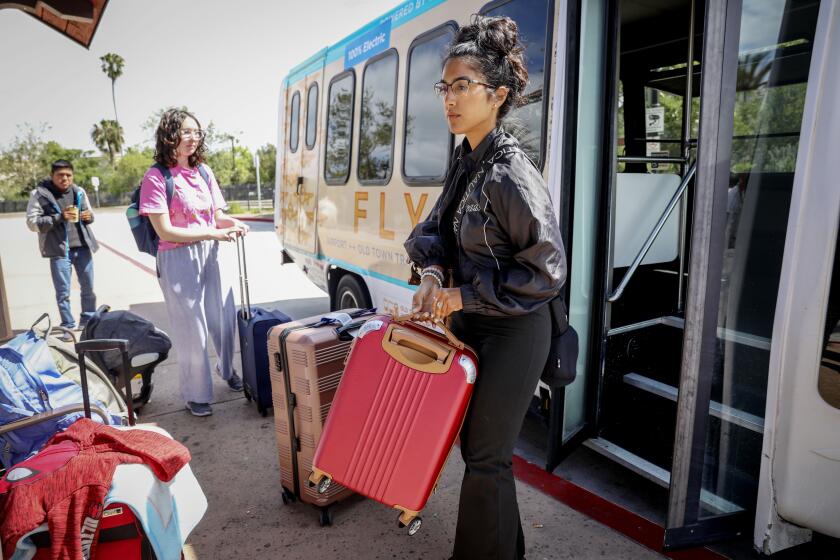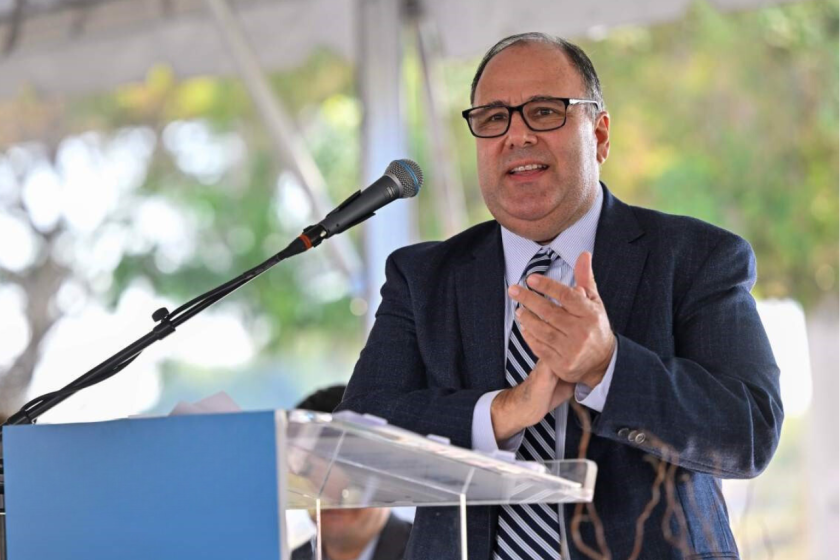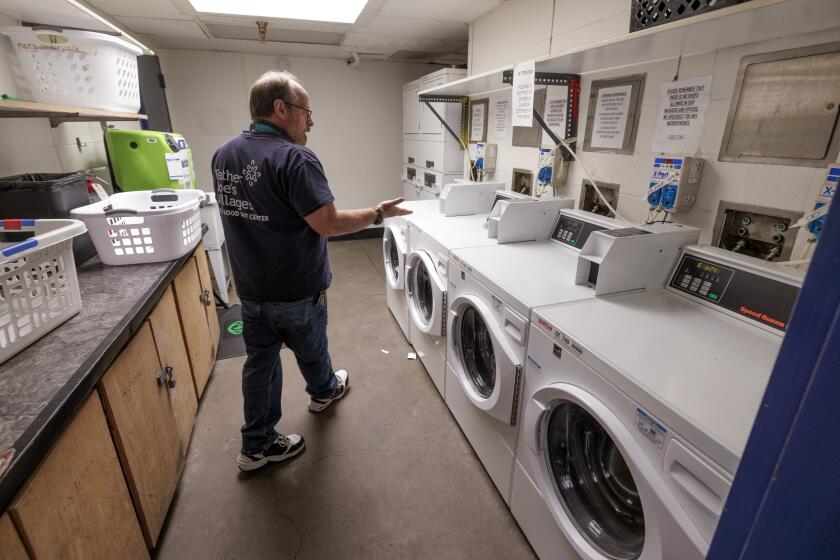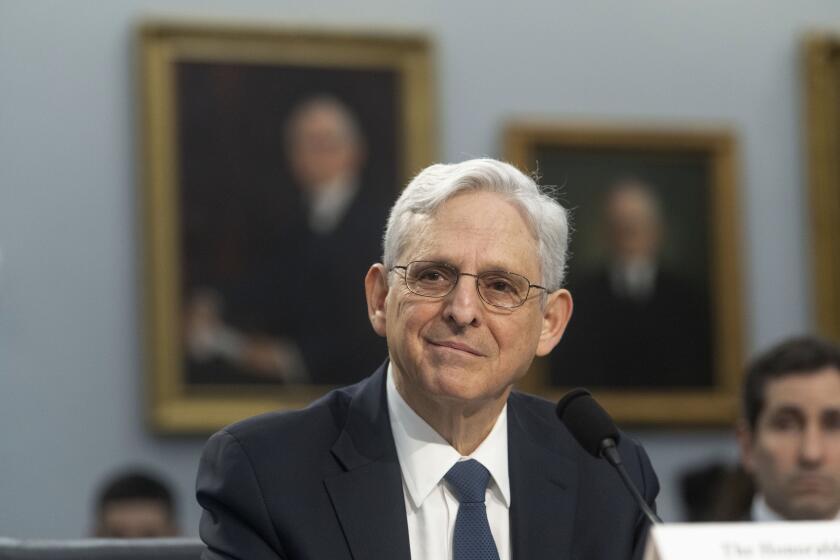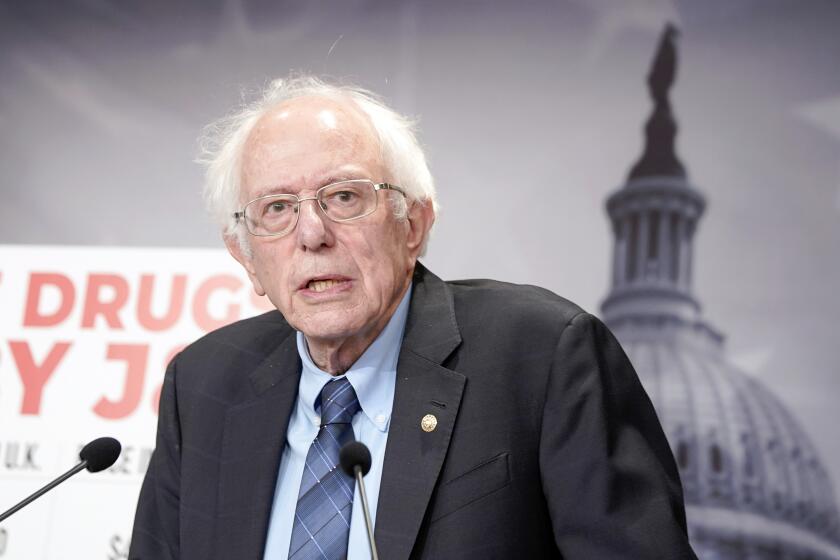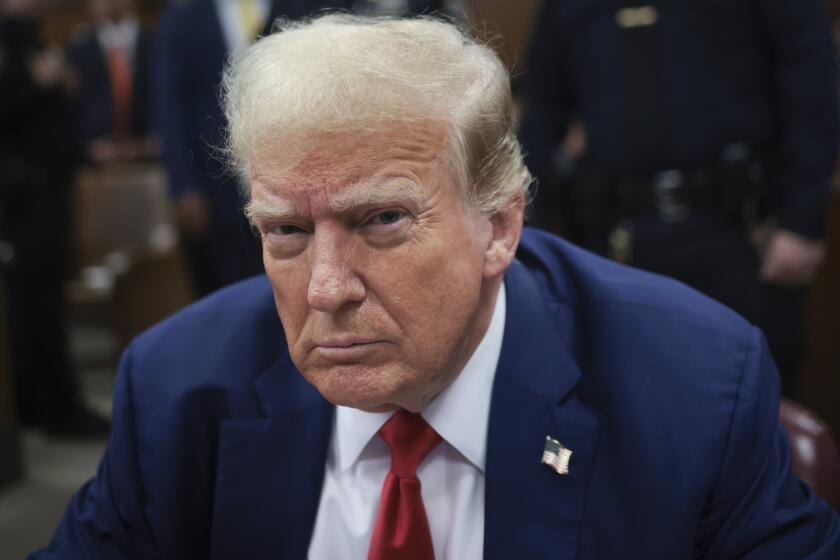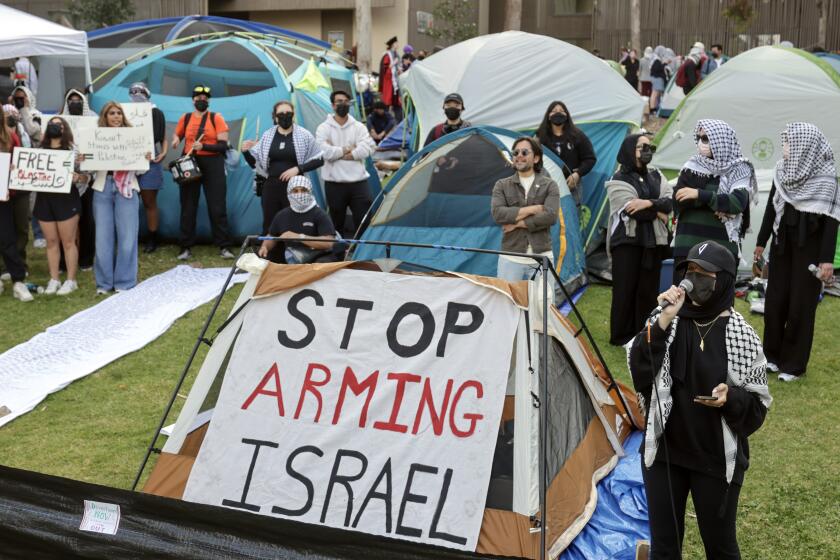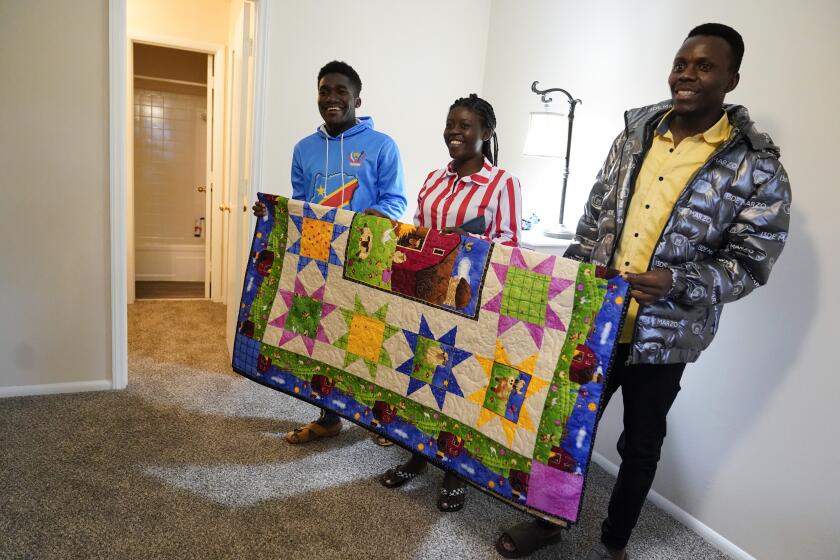With measure to repeal San Diego’s no-fee trash pickup narrowly trailing, supporters may try again in 2024
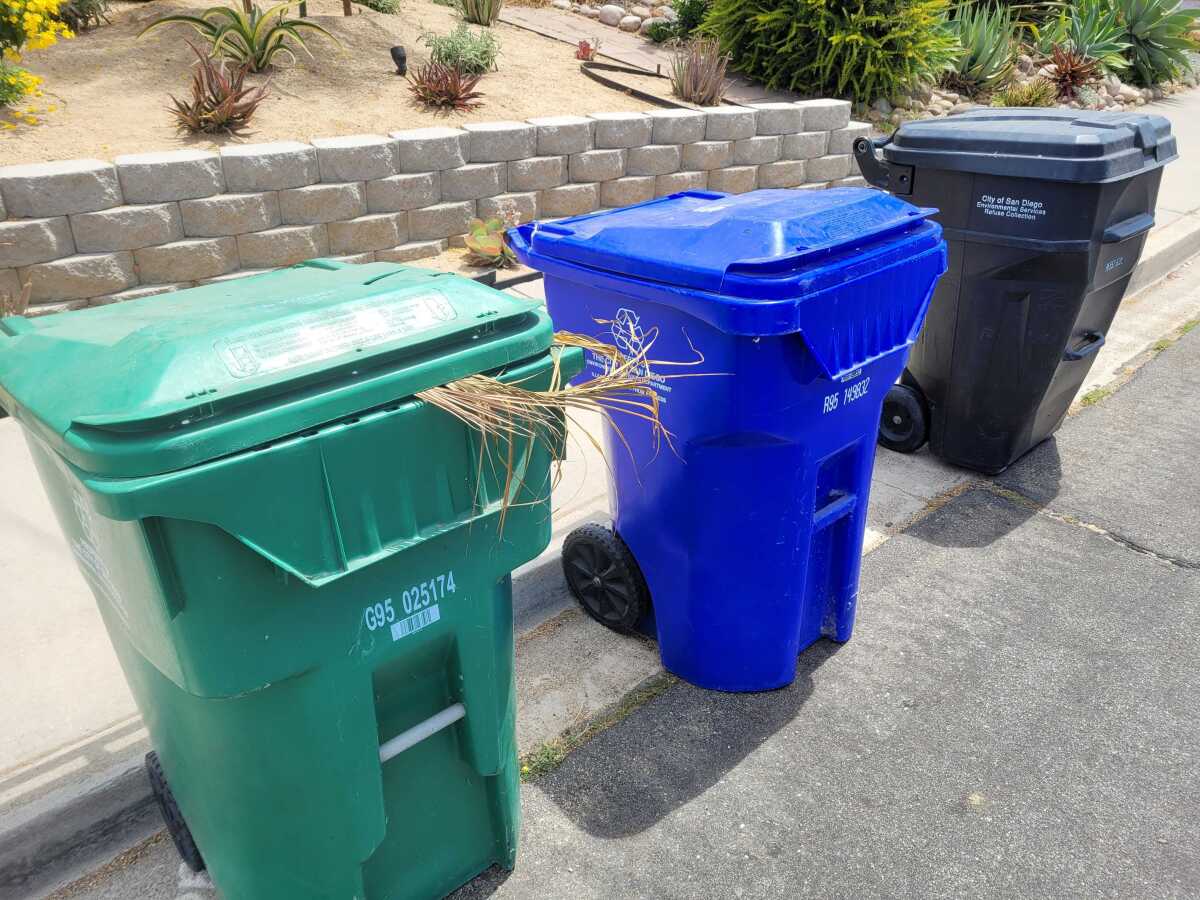
The expect an electorate that would be larger, less conservative and less concerned about fee increases if inflation eases
Supporters of San Diego’s Measure B, which would end no-fee trash pickup for single-family homes, are starting to consider trying again in 2024 with the measure looking likely — but not certain — to fall narrowly short of approval.
They expect the electorate in the November 2024 presidential election to be larger, less conservative and possibly more open to a new monthly fee for trash pickup — especially if inflation has eased significantly by then.
For the record:
8:07 p.m. Nov. 16, 2022Due to an editing error, an update to this story incorrectly listed the number of votes by which Measure B was trailing Monday as 1,300. The measure was trailing by 1,030 votes.
Facing what appears to have been a less favorable electorate this fall, Measure B was getting support from 49.37 percent of voters as of Saturday’s release of election results.
By Monday, with nearly 375,000 votes tallied and more still being counted, the race had tightened, with 49.86 percent of voters in favor and 50.14 percent opposed. That left the measure trailing by just 1,030 votes.
Two other initiatives — one that would allow child care facilities in city recreation centers, and one that would end a city ban on union-friendly project labor agreements — appeared headed for approval in early election returns.
Defeated ballot measures that get presented to voters again shortly afterward are always a gamble, political consultants say. Voters become more aware of the negative arguments, and the idea can seem stale instead of new and exciting.
For example, San Diego’s Measure C — which was approved 57 percent to 43 percent in 2020 before getting nullified by the courts on a technicality — now has a narrow lead two years later. The measure would lift the 30-foot building height limit near the sports arena in the Midway District.
If Measure B supporters pursue a new campaign in 2024, they would be able to apply lessons learned this year. They could also study precinct maps showing where the measure did well and fared poorly.
As of Thursday evening’s results release, those maps appeared to show the measure has done best in low-income areas like southeastern San Diego and areas with high concentrations of apartments and condominiums, such as Mission Valley and North Park.
The measure has fared the worst in mostly suburban neighborhoods with more single-family homes, such as Tierrasanta, San Carlos, Rancho Bernardo, Clairemont and La Jolla.
That makes sense because San Diego’s two-tiered trash system forces businesses and owners of apartments and condos to pay private haulers to pick up their trash, while single-family homeowners pay nothing beyond their property taxes.
Supporters call two-tiered system egregiously unfair, both sides say free is wrong word to describe inequities
The measure would allow the city to start charging single-family homeowners a monthly fee for trash pickup. City officials estimate the fee would be somewhere between $23 and $29.
Recent vote updates haven’t shown a clear trend for Measure B. The margin it trails by climbed from 2,200 to 2,800 on Tuesday night, dropped to just over 2,000 Wednesday morning, then shot up to 3,600 on Thursday and 4,729 Friday, before dropping below 3,900 Saturday and falling even more sharply Monday.
“It’s basically a coin flip, which is far better than anyone would have expected two years ago — and maybe even one or two months ago,” said City Council President Sean Elo-Rivera, who spearheaded efforts behind the initiative.
“This was considered the third rail of San Diego politics for a long time,” said Elo-Rivera, referring to skepticism that enough single-family homeowners would vote to start charging themselves for trash pickup. “We very easily could have been laughed out of the room for even thinking this should be put on the ballot.”
Elo-Rivera said there is no doubt 2024 would be a more friendly electorate for the measure, but he said that doesn’t mean it was a mistake to try this year.
“People always say wait until next time — there will be fewer items on the ballot, there will be a better electorate — and it’s that mode of thinking that seems to have prevented the council from putting important items before the voters,” he said. “The important thing was to pose the question to the voters: ‘Do you think that this very old, outdated, inequitable and really restrictive law should be amended?’”
Ballot statement won’t highlight new fee that would be imposed on residents in single-family homes
Elo-Rivera said one reason for optimism about a second try in 2024 is the leftward political shift in recent years in San Diego, where Democrats will soon control every seat on the City Council and the mayor is a Democrat.
He said that shift fits with Measure B nearly winning and with the apparent success of Measure D, an initiative lifting the city’s ban on union-friendly project labor agreements. That measure is leading 57 percent to 43 percent.
“I think it says a lot about the way San Diego has changed,” he said.
Haney Hong, a vocal opponent of Measure B and chief executive of the San Diego County Taxpayers Association, said the apparent defeat of the initiative should prompt supporters to consider compromises.
“I’m ready to focus on working with folks at City Hall to get the right thing on the ballot,” Hong said.
During the campaign, he acknowledged the city’s two-tiered trash system is unfair, but said the solution should be extending no-fee pickup to apartments and condos.
Hong said this week that his organization could potentially support ending no-fee pickup for single-family homes if Measure B supporters agree to eliminate the measure’s requirement that pickups at single-family homes continue to be handled by city workers.
“The city monopoly is key,” he said. “We want competition from private haulers to keep rates down.”
While Measure B supporters would like to have all the support they can get, the measure has already been endorsed by a wide cross-section of business, environmental and labor organizations.
Most of the money for the opposition campaign came from Reform California, a political organization led by former City Councilmember Carl DeMaio.
He said this week that the defeat of Measure B would be good news for people struggling with inflation and San Diego’s already high cost of living.
“Preventing a costly garbage tax from being imposed in San Diego will be big win for working families,” DeMaio said.
About 53 percent of households receive the no-fee service, which costs the city about $70 million a year that could be used to pay for other city services.
Get Essential San Diego, weekday mornings
Get top headlines from the Union-Tribune in your inbox weekday mornings, including top news, local, sports, business, entertainment and opinion.
You may occasionally receive promotional content from the San Diego Union-Tribune.
